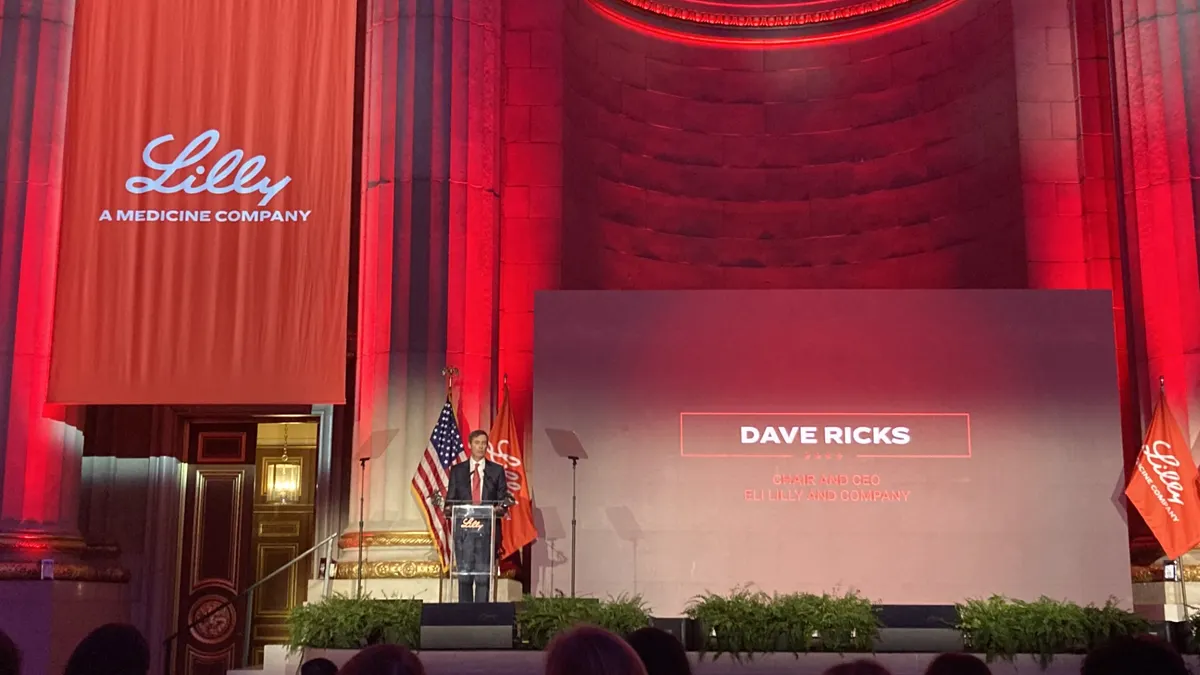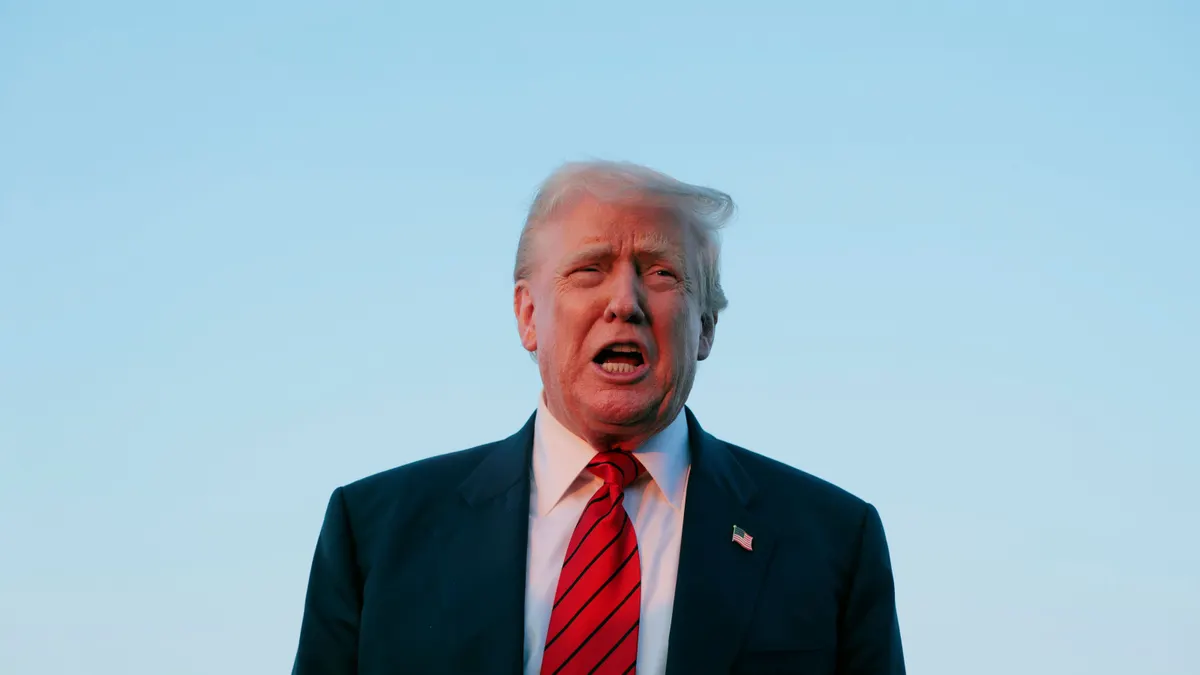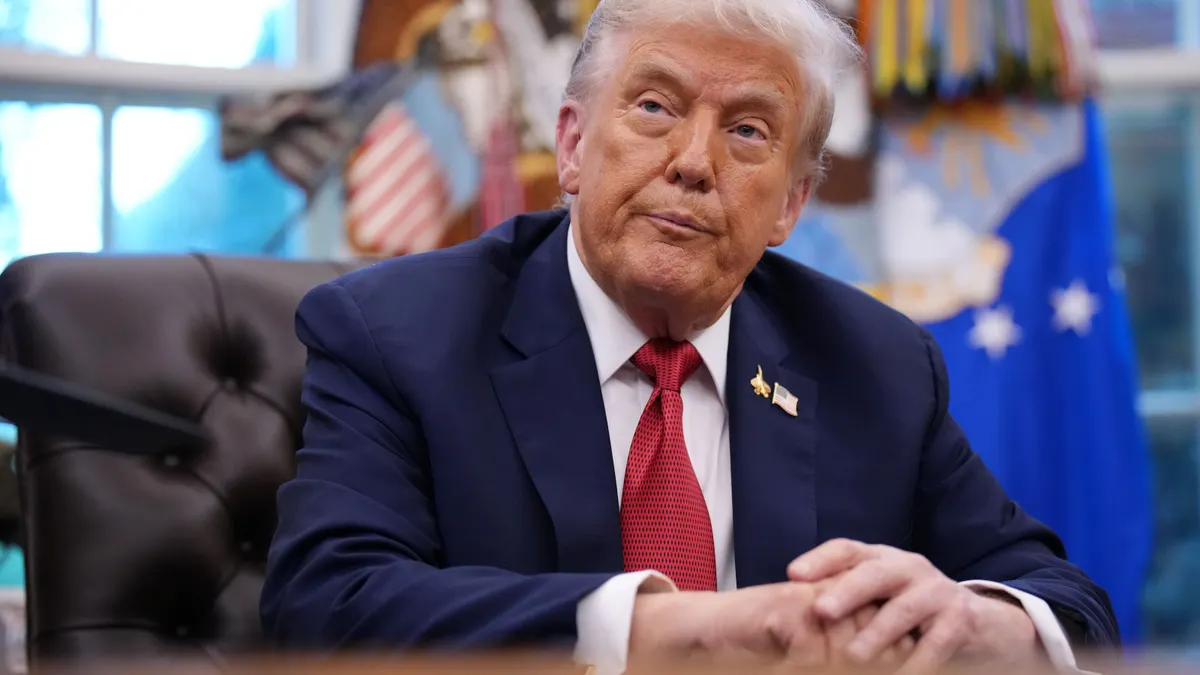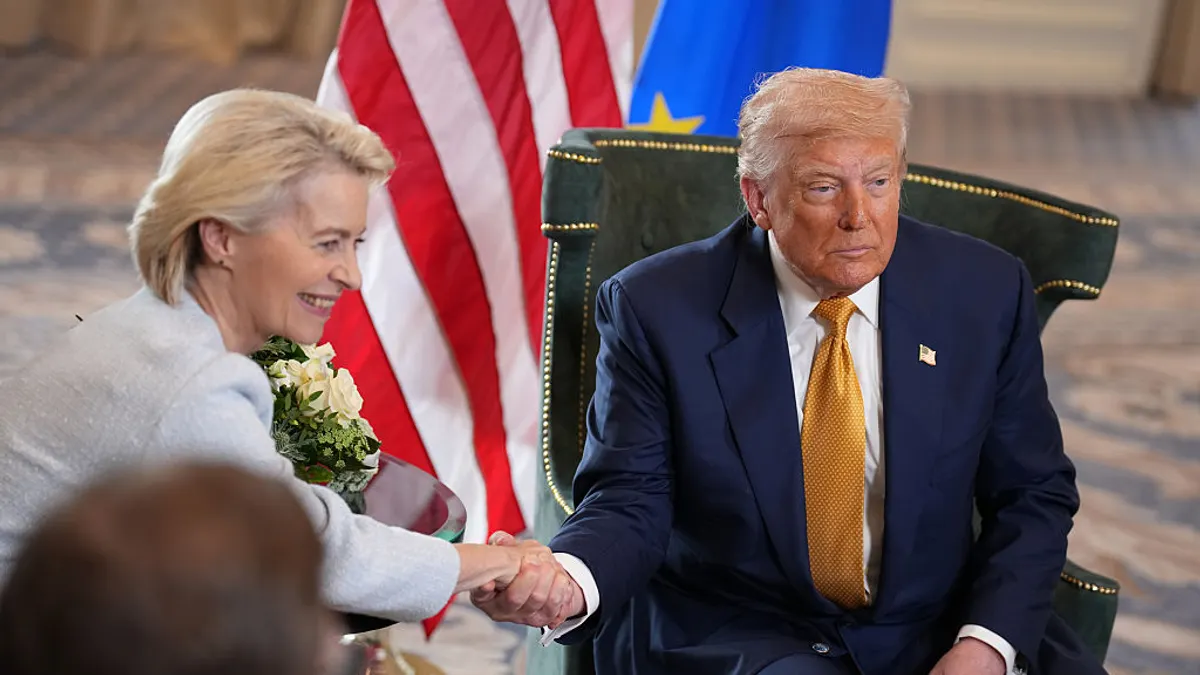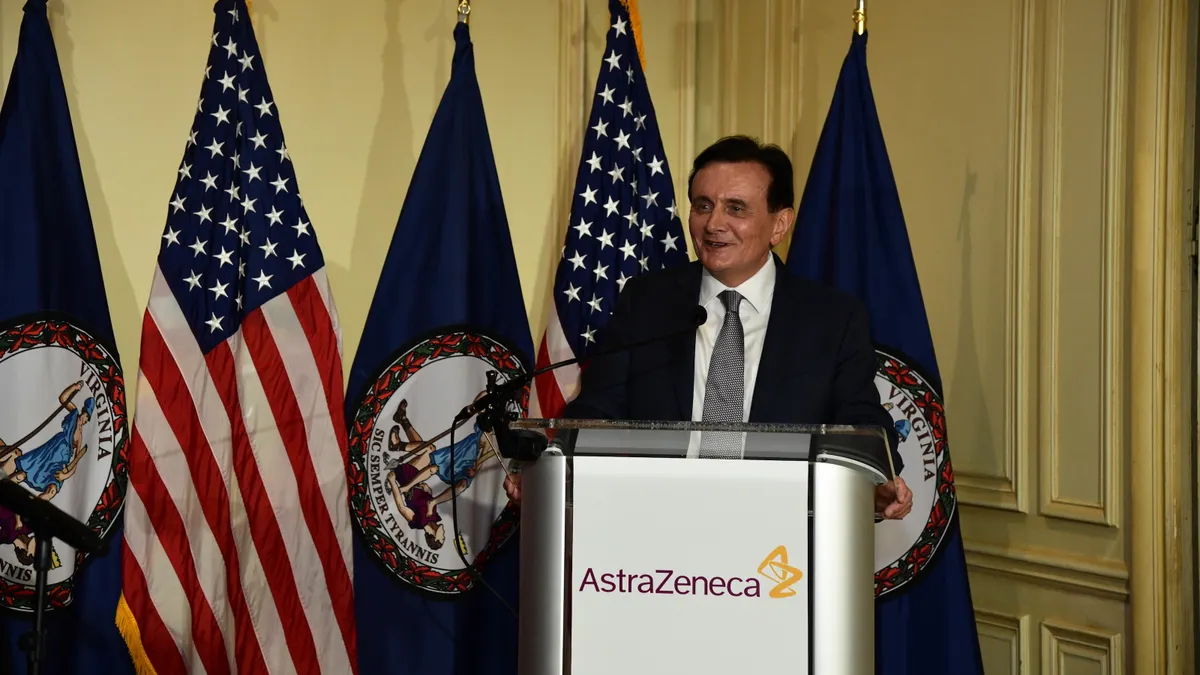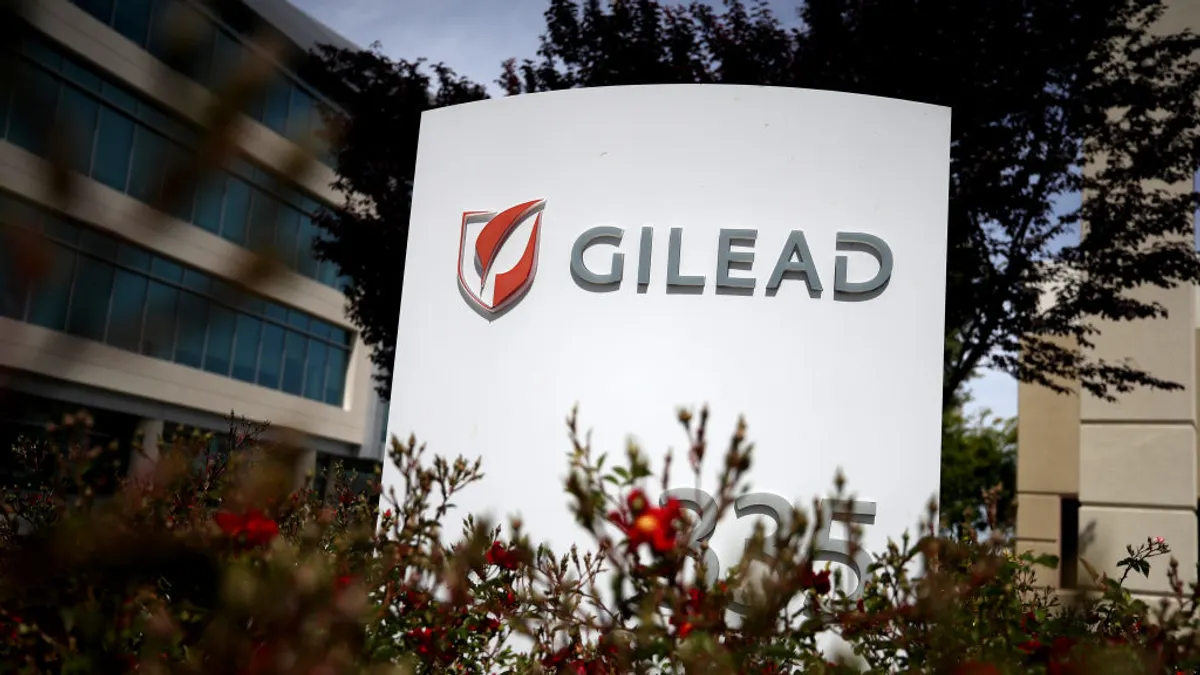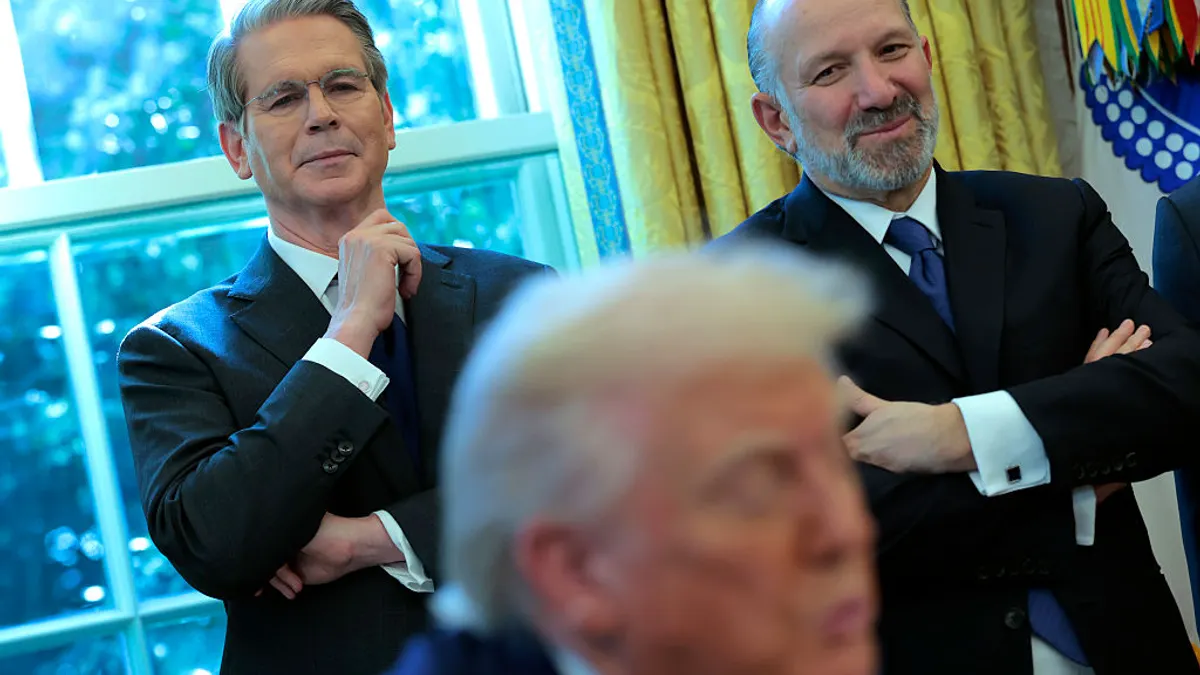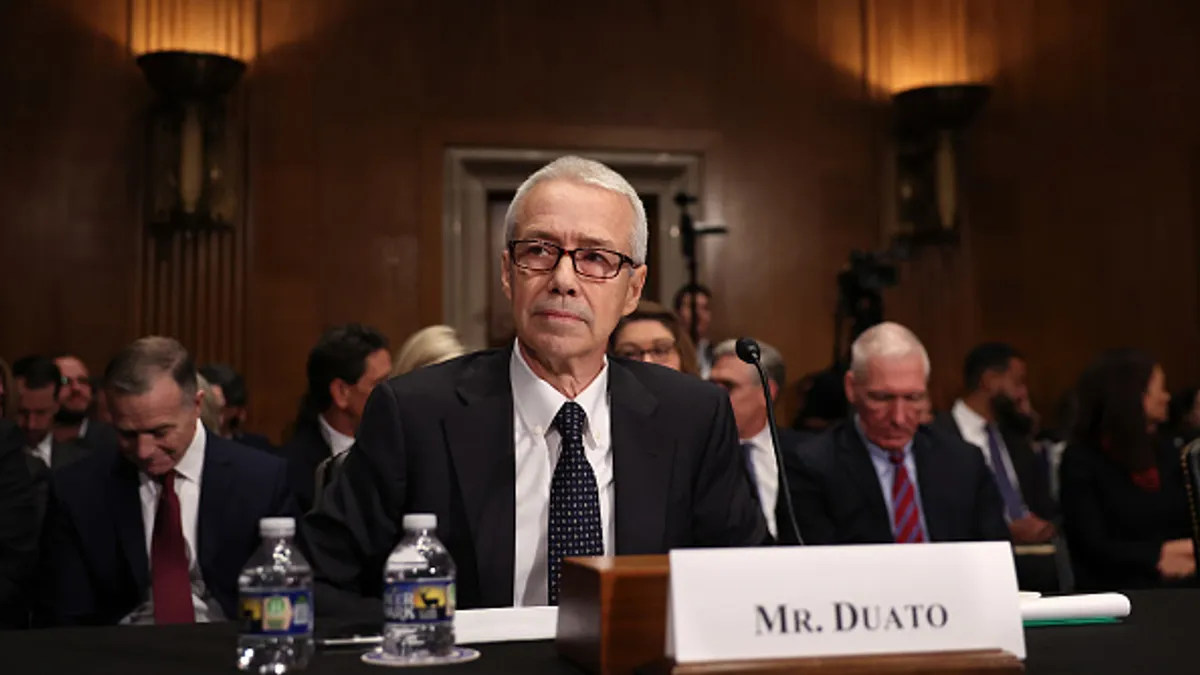Eight years ago, Eli Lilly CEO David Ricks stood in front of a red banner emblazoned with the words “Invested in America” to tout an $850 million investment his company was making in U.S. manufacturing. He used the moment to urge Congress pass corporate tax cuts that President Donald Trump had made a priority for his first administration.
On Tuesday, Ricks was in front of red Lilly banners again with a similar message, but on a much grander scale. Joined by newly confirmed Commerce Secretary Howard Lutnick, Ricks announced his company would undertake what he described as an “expansion agenda unprecedented in history.” In the coming years, Lilly plans to spend $27 billion building four new drug factories in the U.S., adding to commitments it’s made since 2020 to invest $23 billion in domestic manufacturing.
“Eli Lilly is doing exactly what the president is hoping would happen, which is having tens of billions of dollars in investment in America,” Lutnick said at the event, which was held in a federal building in Washington, D.C. “We need steel mills. We need precursor medicines. These are fundamental underpinnings of America that we need to reshore.”
Lilly’s announcement comes as Trump has threatened to impose tariffs on pharmaceutical imports “in the neighborhood of 25%.” In a recent meeting with Ricks and other pharma CEOs, Trump reportedly brought up that threat as he prodded them to increase manufacturing capacity in the U.S.
Speaking Tuesday, Ricks framed Lilly’s planned investment as an opportunity to reduce the company’s “reliance on foreign suppliers” and gain greater control over its supply chain. Notably, three of the four plants will be used to produce active pharmaceutical ingredients for small molecule drugs, a capability Ricks noted has been “absent from the landscape in the U.S. for some time.”
But Ricks also noted how the 2017 tax cuts, which expire at the end of this year, are “fundamental” to Lilly’s investment. “It’s essential these policies are extended permanently this year.”
The administration, Ricks said, is using tariffs as a tool, or “stick,” to force companies to reshore manufacturing. “We point out here today that, as a company, tax reform is the carrot. When that’s not in balance, I don’t think they’re going to get the outcome they want.”
The prospects of a tax cut extension grew Tuesday as the House of Representatives narrowly passed a bill that would renew them. The 2017 law reduced the base corporate tax rate to 21% and, importantly for drugmakers, lowered levies on profits earned abroad that are later repatriated to the U.S.
Ricks also advocated for other policies important to both Lilly and the broader pharma industry. Drugmakers are seeking changes to a Biden-era law that granted Medicare authority to negotiate prices on certain drugs. Specifically, they hope to extend the timeline provided in the law for when small molecule drugs are eligible for negotiation.
If that timeline isn’t lengthened, Ricks said, companies will invest less in small molecules, which are often produced as pills and can more readily treat certain diseases, and change how they study the ones they do develop.
“I think we’ll get fewer preventative medicines and more acute medicines. I think that flies right in the face of what Secretary Kennedy is trying to do,” he said, referring to Robert F. Kennedy Jr., who now leads the Department of Health and Human Services.
Lilly also wants the Centers for Medicare and Medicaid Services to finalize a rule allowing Medicare to cover obesity medicines. The insurance program is currently barred from covering drugs for weight loss drugs like Lilly’s popular GLP-1 medicine Zepbound.
“We look forward to working with this administration to finalize the proposed rule to cover those medications,” Ricks said.



